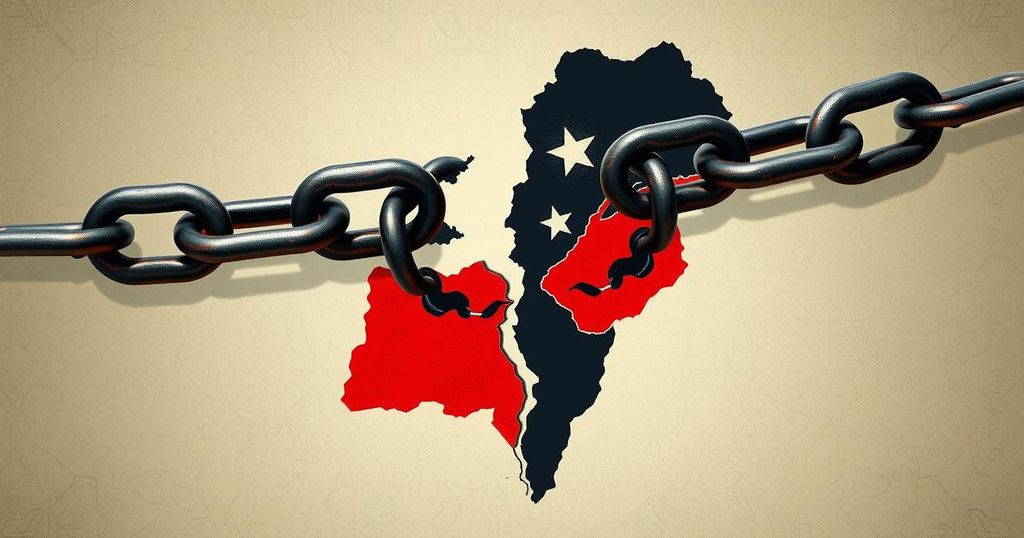President Trump suggested that Egypt and Jordan accept Palestinian refugees from Gaza, facing strong rejections from these nations amid ongoing conflicts. Both countries are concerned about the implications of such a move on their economies and stability. The proposal has been met with confusion and skepticism from U.S. officials and about the feasibility of relocating a large refugee population.
President Trump’s recent proposal urging Egypt and Jordan to accept a significant influx of Palestinian refugees from Gaza has been met with considerable pushback and confusion from both countries’ governments, as well as mixed reactions from U.S. officials. Amid a fragile ceasefire following escalating violence initiated by Hamas’ attacks on Israel, the population of Gaza faces immense displacement due to extensive military campaigns.
During a press briefing aboard Air Force One, Mr. Trump expressed his desire to facilitate a transfer of approximately 1.5 million individuals from Gaza, remarking on the chaotic conditions there. He conveyed to Jordan’s King Abdullah his hope for Jordan to take in refugees, while simultaneously addressing Egyptian President Abdel Fattah el-Sissi about a similar arrangement.
The response from Hamas was swift, as their spokesperson highlighted that the return of displaced Palestinians is a strong indication of resilience against attempts to uproot them from their homeland. He asserted that any efforts to displace them demonstrate a failure in the occupation’s broader strategy.
Both Egypt and Jordan have expressed their concerns surrounding Mr. Trump’s proposal, fearing a potential permanent displacement of the Palestinian people. Jordan, already housing over two million Palestinian refugees, stated its unwavering opposition to the concept. Concurrently, Egypt warned that resettling Palestinians could exacerbate regional conflicts.
According to Egypt’s Foreign Ministry, the lack of political resolution to the Palestinian issue is a primary cause of ongoing instability in the Middle East. The ministry reiterated its commitment to upholding the rights of the Palestinian people, voicing clear opposition to their displacement to other territories.
Despite his intentions, President Trump’s suggestions have left many, including some Republican allies, puzzled about the practicality and implications of his remarks. While government officials in countries like Germany and Italy have rejected the concept of mass displacement, they stress the need for a comprehensive plan involving international cooperation for the reconstruction of Gaza.
Mr. Trump also announced the unfreezing of a shipment of 2,000-pound bombs to Israel, a move that aligns with his longstanding support for Israeli interests. He articulated that the current state of Gaza is dire and emphasized the necessity of establishing new housing for displaced individuals in nearby Arab nations.
President Trump’s proposal for resettling Palestinian refugees from Gaza in Egypt and Jordan has faced significant opposition and confusion from both governmental and international actors. The situation in Gaza remains critical, with many displaced individuals returning to their homes despite the ongoing conflict. Regional leaders emphasize the need for a political solution to the Palestinian issue to ensure stability in the Middle East.
Original Source: www.cbsnews.com






